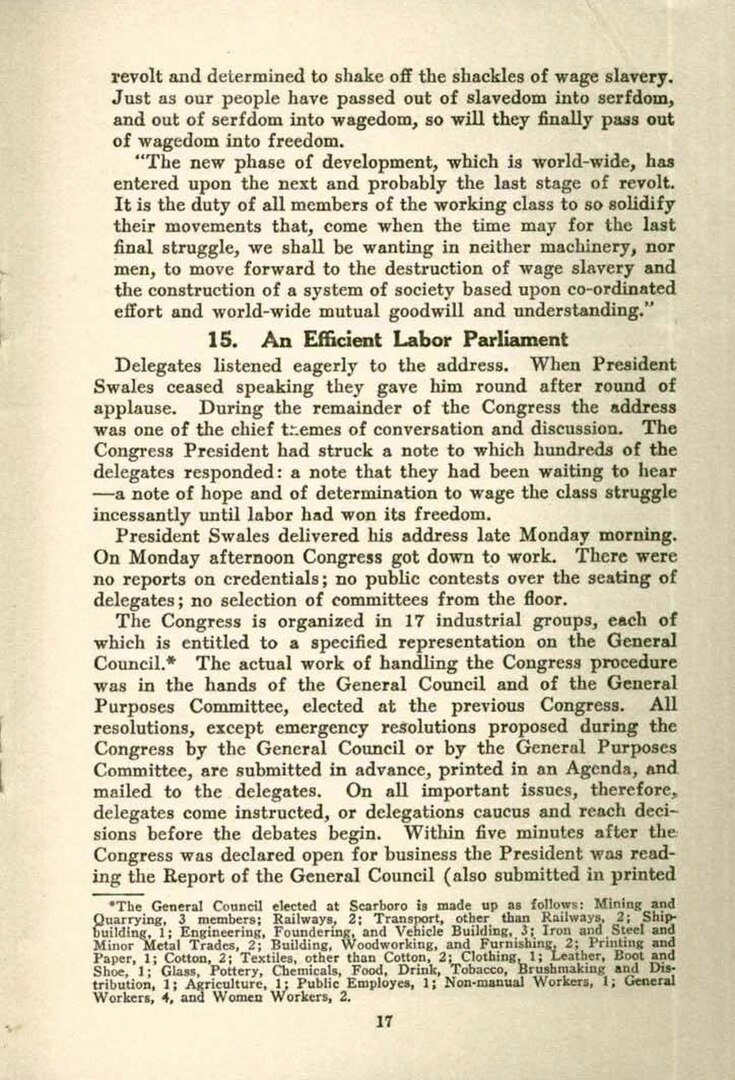revolt and determined to shake off the shackles of wage slavery. Just as our people have passed out of slavedom into serfdom, and out of serfdom into wagedom, so will they finally pass out of wagedom into freedom.
"The new phase of development, which is world-wide, has entered upon the next and probably the last stage of revolt. It is the duty of all members of the working class to so solidify their movements that, come when the time may for the last final struggle, we shall be wanting in neither machinery, nor men, to move forward to the destruction of wage slavery and the construction of a system of society based upon co-ordinated effort and world-wide mutual goodwill and understanding."
15. An Efficient Labor Parliament
Delegates listened eagerly to the address. When President Swales ceased speaking they gave him round after round of applause. During the remainder of the Congress the address was one of the chief themes of conversation and discussion. The Congress President had struck a note to which hundreds of the delegates responded: a note that they had been waiting to hear—a note of hope and of determination to wage the class struggle incessantly until labor had won its freedom.
President Swales delivered his address late Monday morning. On Monday afternoon Congress got down to work. There were no reports on credentials; no public contests over the seating of delegates; no selection of committees from the floor.
The Congress is organized in 17 industrial groups, each of which is entitled to a specified representation on the General Council.[1] The actual work of handling the Congress procedure was in the hands of the General Council and of the General Purposes Committee, elected at the previous Congress. All resolutions, except emergency resolutions proposed during the Congress by the General Council or by the General Purposes Committee, are submitted in advance, printed in an Agenda, and mailed to the delegates. On all important issues, therefore, delegates come instructed, or delegations caucus and reach decisions before the debates begin. Within five minutes after the Congress was declared open for business the President was reading the Report of the General Council (also submitted in printed
- ↑ The General Council elected at Scarboro is made up as follows: Mines and Quarrying, 3 members; Railways, 2; Transport, other than Railways, 2; Shipbuilding, 1; Engineering, Foundering, and Vehicle Building, 3; Iron and Steel and Minor Metal, Trades, 2; Building, Woodworking, and, Furnishings 2; Printing and Paper, 1; Cotton, 2; Textiles, other than Cotton, 2; Clothing, 1; Leather, Boot and Shoes, 1; Glass, Pottery, Chemicals, Food, Drink, Tobacco, Brushmaking and Distribution, 1; Agriculture, 1; Public Employes, 1; Non-manual Workers, 1; General Workers, 4, and Women Workers, 2.
17
